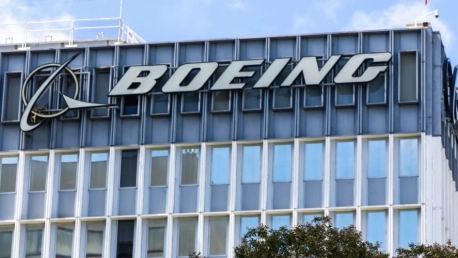In a significant development within the aviation industry, Boeing has agreed to plead guilty to charges of defrauding the U.S. government, marking a pivotal moment in the aftermath of two tragic crashes involving its 737 Max jets. The crashes in Indonesia and Ethiopia resulted in the loss of 346 lives and ignited intense scrutiny from both the public and regulatory authorities. The legal journey culminates in Boeing’s admission of guilt and the consequences it must now face.
Guilty Plea and Legal Context
Boeing’s decision to plead guilty is a direct outcome of the Justice Department’s conclusion that the aerospace giant violated the terms of a 2021 agreement designed to prevent prosecution. This previous agreement aimed at holding Boeing accountable while avoiding direct legal consequences, provided the company met specific obligations. However, the Justice Department’s assessment indicates that Boeing failed to adhere to these conditions, thus leading to the current legal repercussions.
Crashes and Consequences
The tragic crashes that are central to this case took place in Indonesia in October 2018 and in Ethiopia in March 2019. Together, these catastrophes claimed 346 lives, resulting in a global grounding of the 737 Max fleet and severe criticism directed at Boeing’s safety practices and the efficacy of regulatory oversight. The crashes revealed significant flaws in the aircraft’s design and raised questions about the company’s commitment to safety.
Government and Public Response
The Justice Department’s involvement signifies a broader trend of increased government intervention and accountability in corporate misconduct, particularly when public safety is at risk. The intense pressure on Boeing is not just from federal transportation and aviation authorities but also from legislators and the victims’ families, all demanding justice and essential reforms. This scrutiny underscores the necessity for greater corporate responsibility and regulatory vigilance.
Company Accountability and Reforms
Emphasis on Boeing’s plea deal highlights the company’s obligation to implement systematic changes to prevent future tragedies. This includes refining safety protocols, improving communication transparency with regulators, and enhancing internal accountability measures. The agreed-upon reforms are vital for restoring public trust and ensuring that safety is prioritized over expediency and cost-cutting measures.
Broader Impact on the Industry
Boeing’s case has significant implications for the broader aerospace and transportation sector. The situation suggests a movement towards stricter oversight and the enforcement of safety regulations, compelling corporations to enhance their accountability and consumer safety measures. The ongoing scrutiny and legal pressures on Boeing set a precedent that may influence industry practices and regulatory policies moving forward.
Journalistic Coverage and Public Perception
In a landmark development within the aviation sector, Boeing has agreed to plead guilty to charges of defrauding the U.S. government, marking a turning point after two devastating crashes involving its 737 Max jets. These tragic incidents, which took place in Indonesia and Ethiopia, resulted in the heartbreaking loss of 346 lives. The crashes not only left families in mourning but also sparked intense scrutiny and outrage from the public, as well as rigorous investigations by regulatory authorities worldwide.The protracted legal journey has now led to Boeing’s admission of guilt, signifying a critical juncture in the company’s history. This acknowledgment comes with significant consequences that the aviation giant must now confront. The fallout will likely include legal penalties, a reevaluation of safety protocols, and a continuing effort to regain public trust. The plea deal underscores the serious ramifications when safety is compromised in the aviation industry, serving as a solemn reminder of the responsibilities that come with aerospace innovation.









